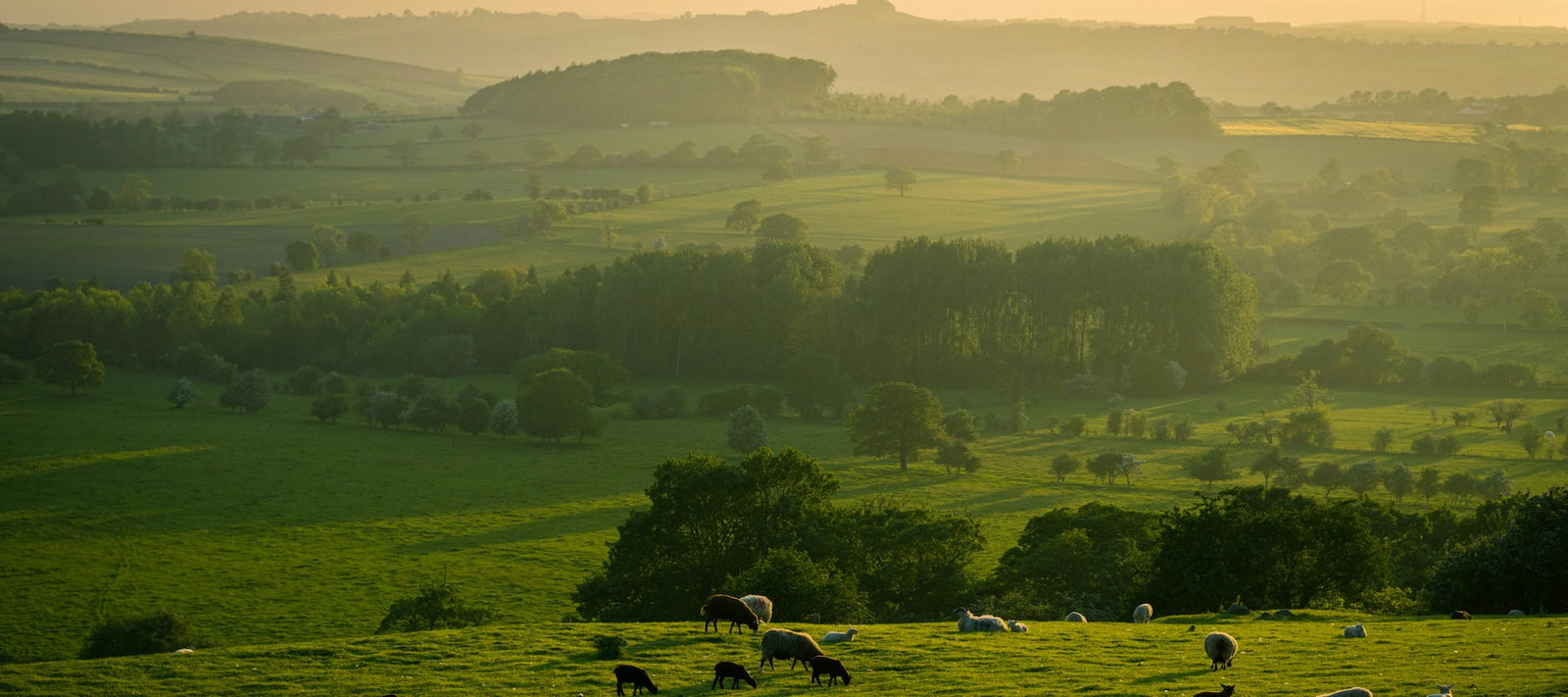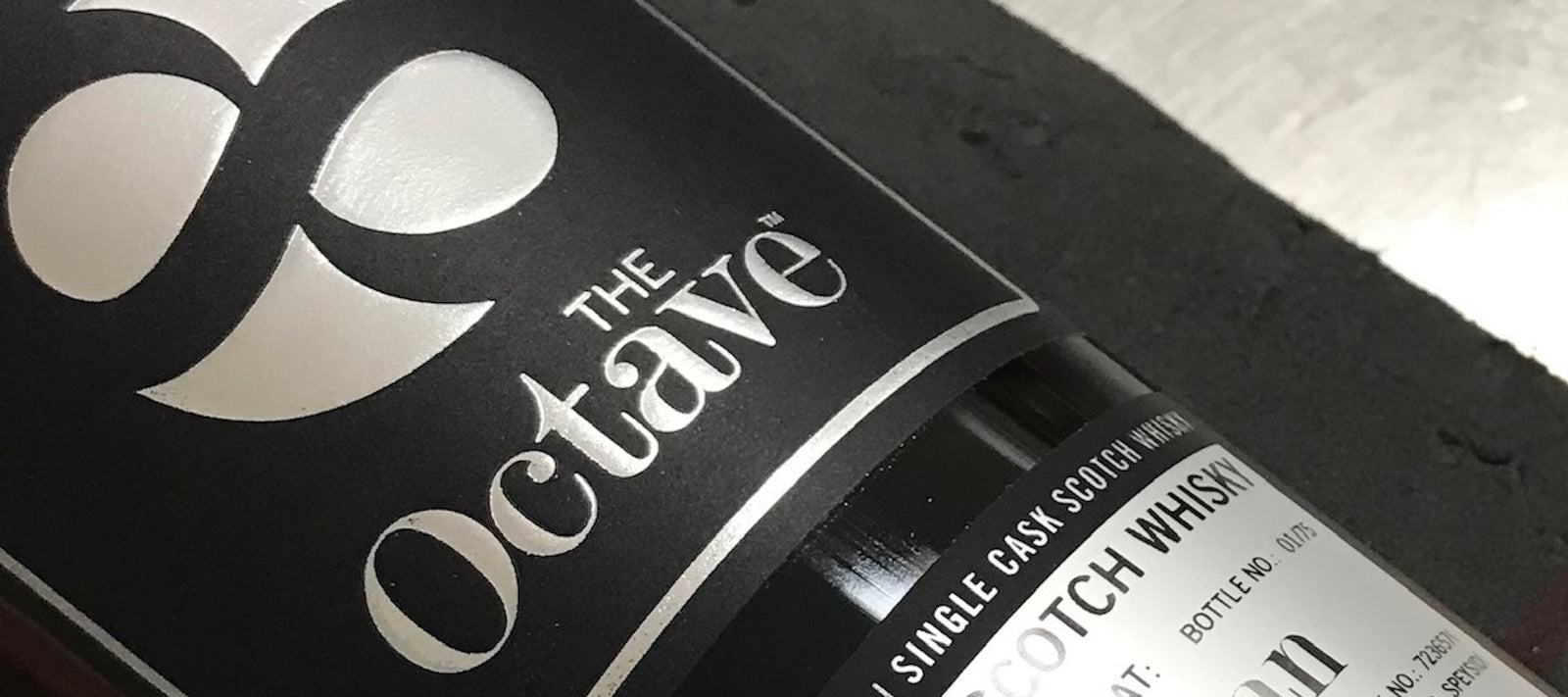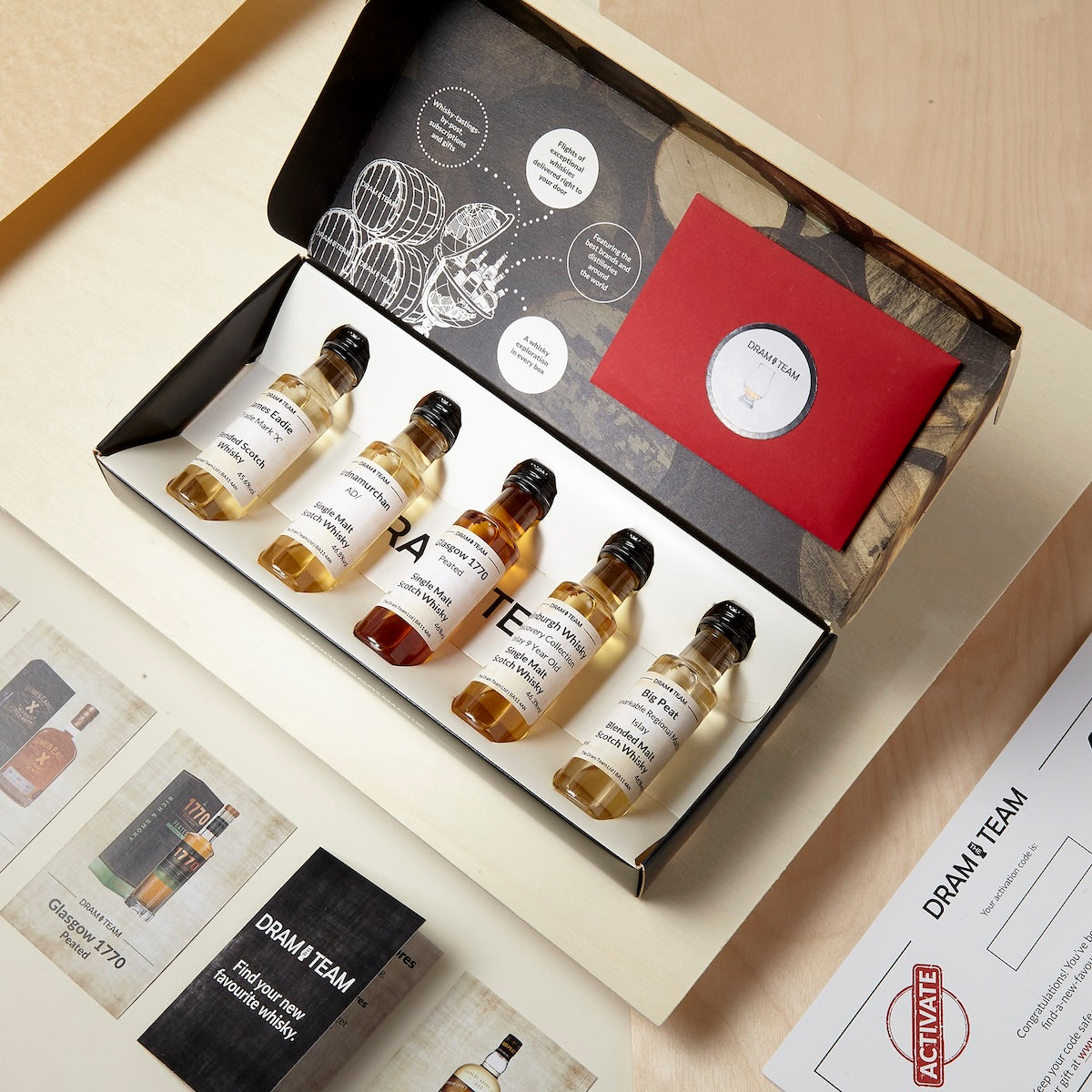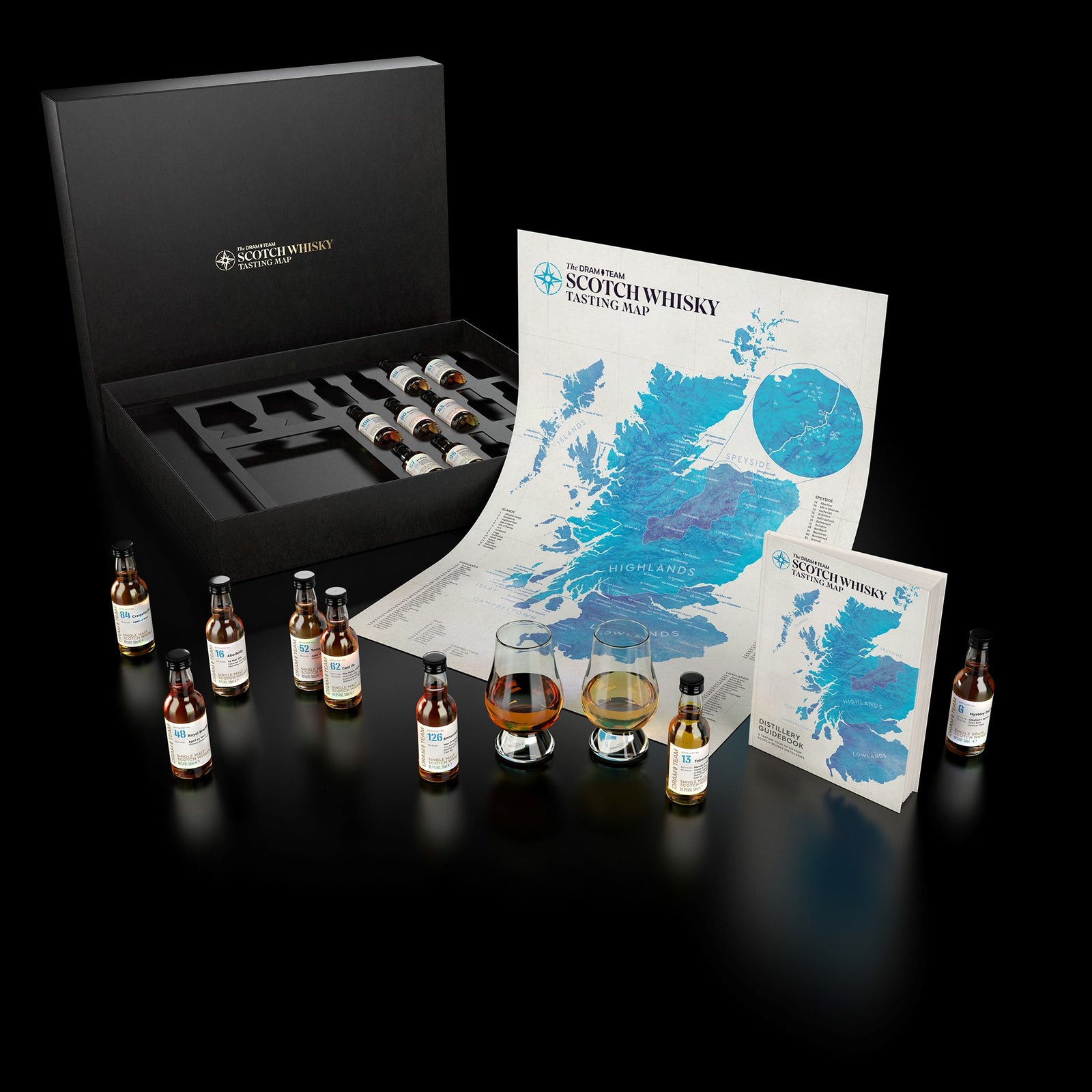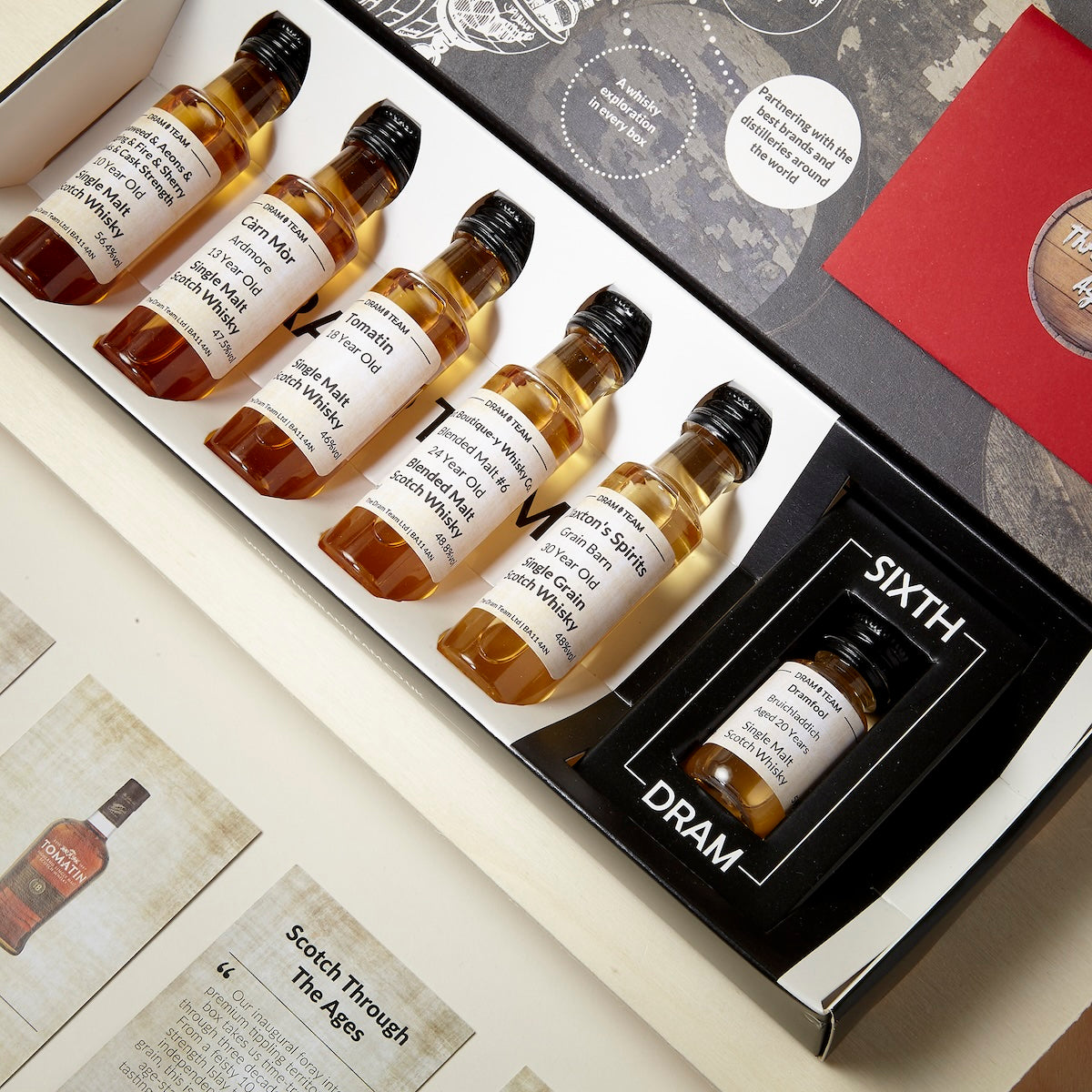Hello Dram Teamers, and welcome back to our series on how whisky is made!Since a few recent boxes have contained some delicious grain whisky, we thought it would be a good excuse to take a closer look at how it's made and what makes it great.
What is Grain Whisky?
Technically, all whisky is grain whisky. Some countries have specific designations for the type of grain used, or ageing process, that make it a specific type of whisky. For example, all bourbons are grain whiskies, but they have strict regulations that make it into a bourbon. For this article, we're mostly just going to look at Scotch grain whisky. If you want to know more about other types of whisky, read our guide on how whisky is made.
"Grain" refers to the base ingredient in the whisky. It can be any type of cereal - usually barley, corn, or rye. Sometimes maize (a sweet type of corn), wheat, or even oat or millet is used. In Japan, you can even have whisky made from rice.
What is Scotch Grain Whisky?
When whisky was first being distilled in Scotland, it was a much smaller affair than it is today. Most whisky was distilled in small pot stills on farms, and drunk by the locals. It wasn't until the invention of the continuous still (or column still) that allowed grain whisky to be produced much more cheaply and quickly. Indeed, Scotland was the first country to embrace this new style of whisky production. This enabled them to make the very first blends of the traditional, pot-distilled malt whiskies and the new-style grain whiskies. Scotch whisky was soon shipped all around the world, and the understanding of how to make grain whisky went with it.
Scotch Grain Whisky Rules:
 Column stills at Loch Lomond, used for making their grain whiskies
Column stills at Loch Lomond, used for making their grain whiskies
Scotch grain whisky must follow all the same rules as Scotch whisky production. That is, it must:
- Be fermented, distilled and aged in Scotland
- Be aged in Scotland in oak casks for a minimum of 3 years
- Contain no additives (other than water and plain caramel colouring)
There are actually 5 different sub-categories of Scotch whisky. These are: single malt, blended malt, single grain, blended grain, and finally, just blended whisky. Some of these sound very similar, so it can get very confusing very quickly!
If the whisky is made from 100% malted barley in a pot still, it can be called malt whisky. It’ll either be a blended malt (if it came from more than one distillery) or a single malt (from just one distillery). Single vs. blended grain whisky follows exactly the same rule, but it can be made from any grain, not just malted barley. It’s usually distilled in a column still rather than a pot still as well, as that’s easier for processing some types of tougher grains. You can make a 100% malted barley whisky in a column still, but you’d have to call it a single grain whisky under Scotch whisky rules!
Why you should try grain whisky
Single grain Scotches offer a different tasting experience to single malts. Owing to differences in grain recipes, each grain distillery will offer different flavour profiles. Because single grains are distilled in column stills, they come off the still with much lighter, more delicate flavours. The use of peat to add smoky flavours to whisky is pretty much only used with malted barley, so grain whiskies are great for people who aren’t fans of smoky whisky.
Grain whisky can also handle much longer ageing times than single malts. In fact, some of the most sought after single grains are often 30-40 years old! It’s this extra time in the cask that brings out some of the magical leathery, tobacco, earthy flavours from the wood that make the taste of grain whisky so comforting.
Most people nowadays want to drink single malts. And that’s great for people who like the taste of single grain whisky - you can buy a very old single grain for much less than you’d pay for the equivalent age single malt. We think single grains are hugely under-rated and under-valued!
Great Grain Whiskies to try today
Here are a few grain whiskies we think you should try right now.
Loch Lomond Single Grain
This whisky is actually made using 100% malted barley, but it was distilled using a Coffey (or continuous) still. This is one of the only examples of this loophole in Scotch whisky rules, so it’s a fun one for us whisky nerds! Expect loads of sweet fruits, butterscotch and vanilla, with a rich oily mouthfeel.
The Whisky Exchange, £27.75
Compass Box Hedonism
 Compass Box Hedonism is a beautiful blended grain whisky
Compass Box Hedonism is a beautiful blended grain whisky
One-of-a-kind blended grain whisky from the inimitable blenders Compass Box. This is silky smooth, creamy, and refined. Like drinking liquid ice cream!
Amazon, £57.89
That Boutique-y Whisky Company Cameronbridge 24 Year Old
A great example of why single grain is where it’s at. This is a 24-year-old single grain Scotch whisky from grain giants Cameronbridge, priced at a steal on sale at only £55 (500ml). Flavours of rich fruit pastries dusted with icing sugar, baking spices and a rich caramel candied finish. Get it while stocks last.
MoM, £54.95
A. D. Rattray Invergordon 16 Year Old Single Grain
A lot of the best value grain whisky comes from independent bottlers. Just like this Invergordon 16 year old, courtesy of family-run A. D. Rattray. Rich stone fruits and candied orange peel abound, while silky sweet caramel and soft nutty notes round out the palate.
Direct, £58
Teeling Single GrainIrishWhiskey
 A fruity, sweet Irish single grain whiskey from Teeling Distillery
A fruity, sweet Irish single grain whiskey from Teeling Distillery
Of course, Scotland isn't the only place in the world that makes excellent single grain whisky. This wonderful example of great Irish whiskey comes to us from Dublin newcomers, Teeling. It's been aged in red wine casks, which gives it a unique raspberry and cranberry burst on the palate. Full of treacle and custard creaminess, it's an indulgent dram for sure.
The Whisky Exchange, £41.75
Try even more Grain Whisky
Love learning about different styles of whisky? Whether you’re a curious newcomer or a seasoned professional, we’re the best way to explore everything the world of whisky has to offer. Join the club and start exploring whisky (including grain whisky) today.
Or, give a gift to the single grain whisky lover in your life.
We also write regular emails to our members, which is the best way to stay informed on upcoming subscription boxes, plus loads of other must-read whisky info. You can get on the list by signing up below.


